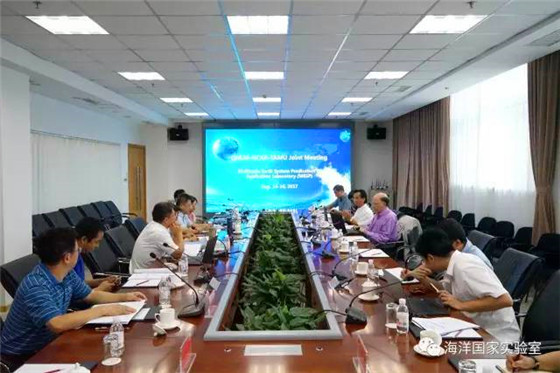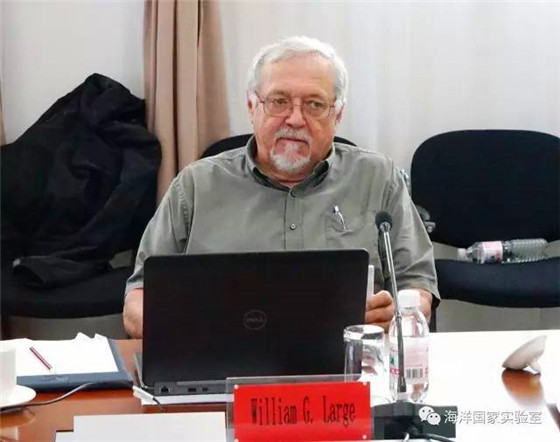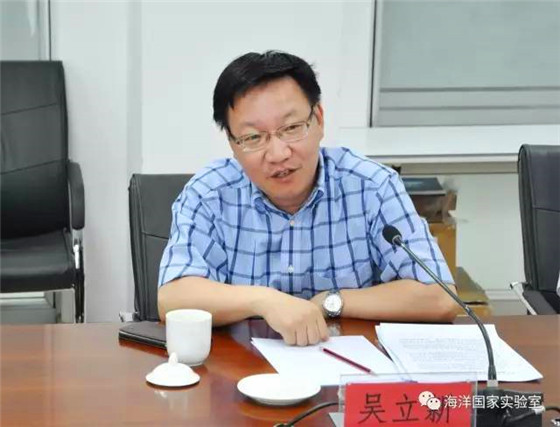Workshop held to boost research on major technologies for ocean and climate change
( chinadaily.com.cn )
Updated: 2017-10-31
|
|||||||||
"Workshop on High Resolution Multiscale Earth System Modelling and Prediction" was held in Qingdao, East China's Shandong province from August 14 to 16.
The workshop was held by Qingdao National Laboratory for Marine Science and Technology (QNLM), jointly with National Center for Atmospheric Research (NCAR) and Texas A&M University (TAMU) of the United States.
 |
|
"Workshop on High Resolution Multiscale Earth System Modelling and Prediction" is held in Qingdao, East China's Shandong province from August 14 to 16. [Photo/ WeChat account:Qingdao National Laboratory for Marine Science and Technology] |
Through discussion, the three parties agreed to pursue joint research on R&D of high resolution, multi-scale global and regional earth system model, to promote the understanding of ocean-atmosphere interaction, wave-induced mixing, and other marine processes, to develop prediction capability for seasonal-decadal global climate change and to realize accurate forecast for meso-scale eddy, El Nino, tornado, tropical cyclone and other meso-scale marine and weather phenomena.
After thorough communication, the three parties have basically reached consensus on the cooperation objective, plan for scientific activities, cooperation mode, resources sharing principles and expected research results for the cooperation over the upcoming five years.
 |
|
William G. Large, division director and senior scientist of the National Center for Atmospheric Research (NCAR) of the United States, delivers a speech during the "Workshop on High Resolution Multiscale Earth System Modelling and Prediction" held in Qingdao, Shandong province. [Photo/ WeChat account:Qingdao National Laboratory for Marine Science and Technology] |
Seasonal-decadal scale prediction on ocean and climate change represents an imperative task for ocean and atmosphere sciences in the future. To fulfill this task, one of the major technologies is multi-scale high resolution earth system prediction mode development.
QNLM represents China's strategic S&T driving force for national innovation system, assuming the mission of resolving major problems for marine science and technology and developing pace-setting marine technologies.
 |
|
Wu Lixin, director of executive committee of the Qingdao National Laboratory for Marine Science and Technology (QNLM), delivers a speech during the "Workshop on High Resolution Multiscale Earth System Modelling and Prediction" held in Qingdao, Shandong province. [Photo/ WeChat account:Qingdao National Laboratory for Marine Science and Technology] |
QNLM's two laboratories, respectively the Functional Laboratory for Regional Oceanography and Numerical Modelling and the Functional Laboratory for Ocean Dynamic Processes and Climate, are among the world's best in the areas of R&D for global ocean model, upper ocean mixing, and data assimilation.
Moreover, QNLM is already equipped with peta-flop class computer and will have exa-flop class computer in place by 2020.
Funded by the US Federal Government, NCAR is the national lab of US in the field of atmosphere, with world-leading capability in R&D for global climate model and earth system model and modelling.
TAMU is internationally renowned for high resolution regional ocean model.
The three parties also have worked for long to forge cooperation in relevant field, with high possibility to jointly establish a center for research and prediction of world climate change.




